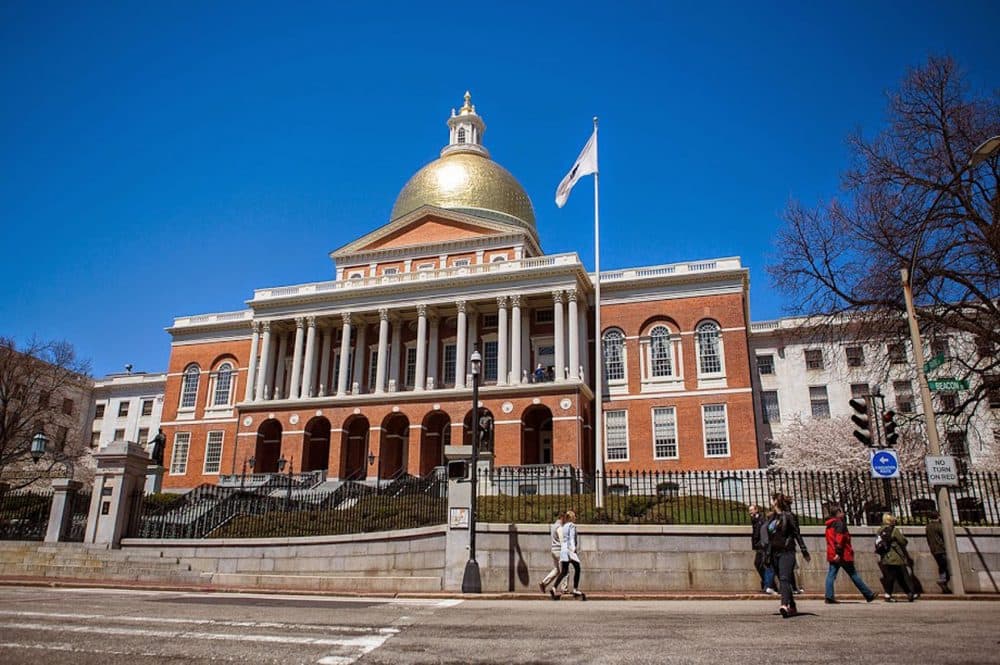Advertisement
State Legislature Passes $15 Million Coronavirus Aid Package

The Massachusetts Legislature made quick work Thursday of a bill authorizing the Baker administration to spend $15 million as it works with local health officials to limit the spread of the coronavirus that's already infected close to 100 people in the Bay State.
Late Wednesday afternoon, the House Ways and Means Committee released the supplemental budget bill that would create a "reserve to support the commonwealth's monitoring, treatment, containment, public awareness and prevention efforts against the 2019 novel coronavirus by the department of public health, regional and local boards of health and other public instrumentalities."
The supplemental budget will direct an initial $15 million to the account. The bill doesn't offer additional instructions as to how the money is to be used, but Gov. Charlie Baker said Tuesday that he anticipates a large portion of the money will be directed into communities for first responders and local boards of health.
"My guess is it will probably be some combination of things that support and assist DPH, but it will probably also be things that support local communities and especially emergency responders and folks like that, local boards of health," Baker said Tuesday. "I mean, there's a lot of people who are working very hard on this at this time, and I'm sure we'll be able to find appropriate uses for it. We really appreciate the Legislature's willingness to do that."
Senate President Karen Spilka and Minority Leader Bruce Tarr noted Wednesday that the legislation is a straightforward appropriation with no specific directions on how the funding should be spent.
Spilka said she did not yet know what day the Senate would take up the funding bill, but said it would be "no later than the beginning of next week."
Earlier on Wednesday, Spilka sent an email to all senators and staffers implementing many of the same preventative measures the House put in place Tuesday night: canceling or postponing all Senate public events for the next 30 days, asking senators not to schedule tours of the State House, and urging that all meetings be converted to conference calls or virtual meetings.
Spilka also told senators who chair committees that they should be in touch with their House counterparts "to discuss the potential of postponing public hearings, or converting them to a format where it is possible to take measures that ensure the ability for public input and online testimony."
"People have to act with reason and be reasonable depending upon what their job is, where they work, what they do," Spilka said in an interview with the News Service. "The more we can have a social distance from one another, the less the virus will be transmitted, and that will help the public health of all of our residents."
Senators who are part of a high-risk population — older adults and individuals with serious chronic medical conditions — should begin to work from home immediately, Spilka said, and other senators should minimize the number of people working from their offices in the State House, which Spilka said "will remain open."
Sen. Jo Comerford, the Senate chair of the Public Health Committee, has been tapped to lead an internal group of senators that will "advise the body on how it should approach the various challenges posed by this evolving epidemic, including any legislation that may be needed," the president said.
The president said the Senate still intends to tackle lawmaking business, but the arc of that work is unclear. No formal sessions are planned for the immediate future, and Senate leaders will decide their schedule — taking into account their constitutional requirement to meet in at least an informal session every 72 hours — on "a week-to-week or possibly day-to-day basis" amid the fluid situation, Spilka said.
Tarr said formal sessions "may or may not occur in the immediate future."
Even if the Senate does not meet formally, Tarr said senators will continue to conduct lawmaking business through teleconferences and by gathering written testimony. Convening to vote on legislation, he said, is the last step in the process and the only one that will be significantly impacted by a response to the virus.
Spilka said officials are exploring a range of options to mitigate disruption, including the possibility of livestreaming informal sessions or allowing remote participation for lawmakers. Tarr, however, said he believed it would be unconstitutional for members to cast votes from outside the building.
Asked if any major legislation would be delayed due to the outbreak — including transportation funding legislation the Senate intends to take up before its May budget debate and a red light camera bill that was pushed into the next formal session — Spilka said she "hope(s) not."
"Open communication is a key, and that's one thing I can assure people: the lines of communication between the Senate and the House are excellent," she said. "There are a lot of things that both the House and the Senate would like to get done this year, so we will do everything possible to get it all done. Clearly, we'll have to be wary of the circumstances."
This article was originally published on March 12, 2020.